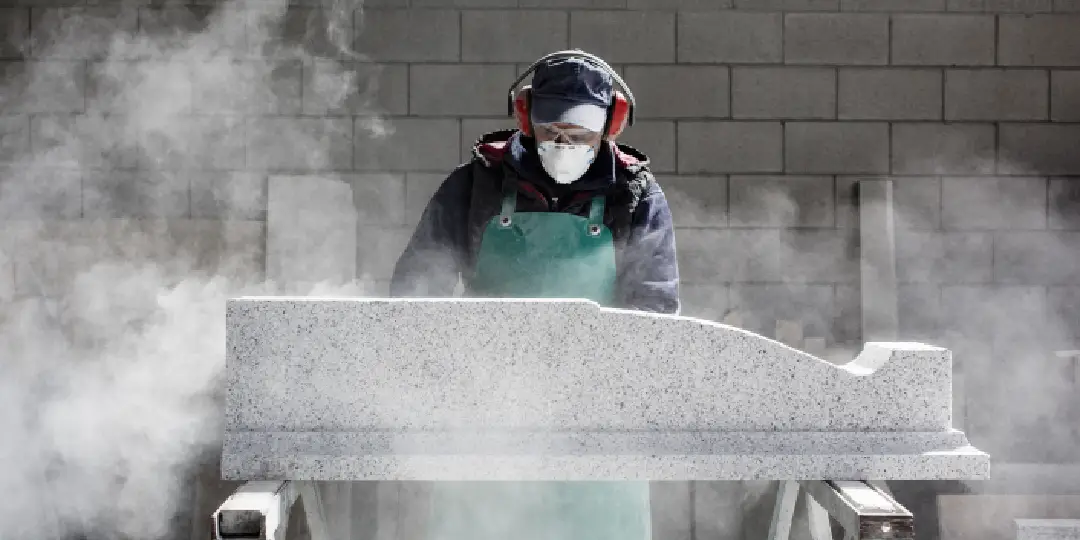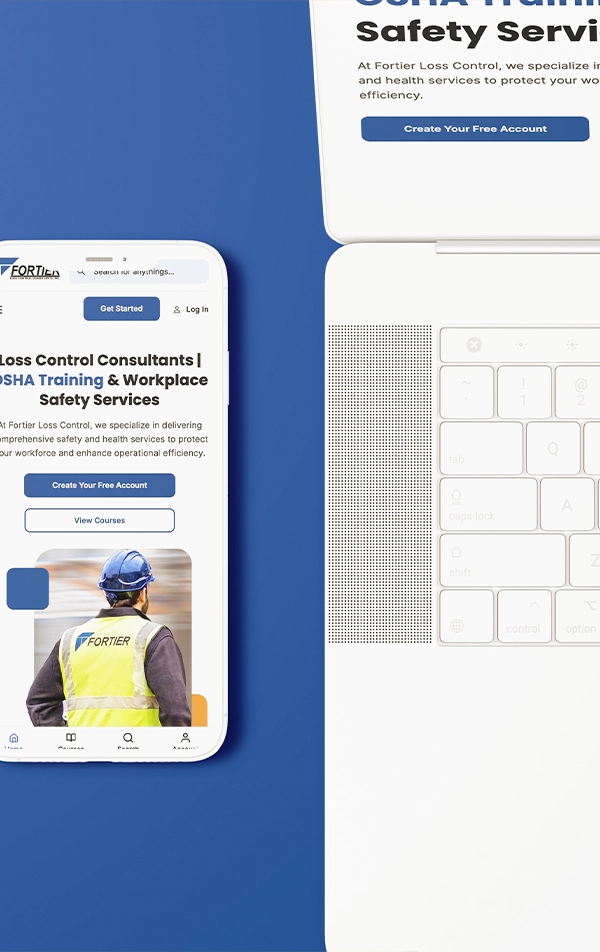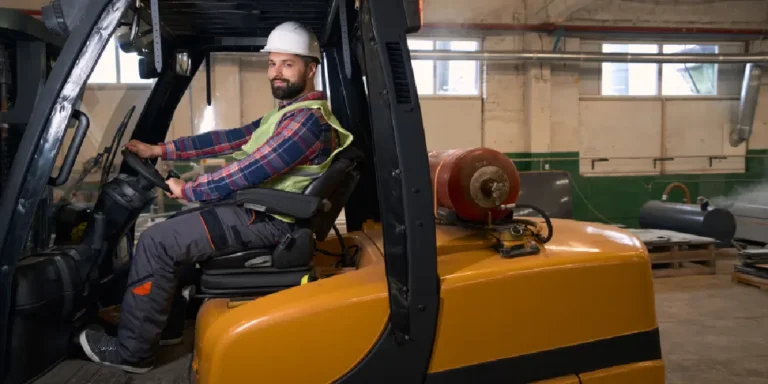Silica exposure remains one of the most critical occupational health hazards in industrial and construction environments, particularly for businesses in Nashville, TN, where construction and manufacturing thrive. Crystalline silica, a naturally occurring mineral found in materials like concrete, stone, brick, and mortar, is a ubiquitous presence in these industries. When processes such as cutting, grinding, drilling, or demolishing these materials occur, fine silica particles are released into the air.
These microscopic particles, often invisible to the naked eye, can easily be inhaled, penetrating deep into workers’ lungs. Over time, this exposure leads to severe health conditions, such as silicosis, a debilitating and incurable lung disease, as well as lung cancer, kidney disease, and other respiratory disorders.
For businesses operating in Nashville, adhering to silica safety practices is not just about compliance; it’s a reflection of their commitment to protecting their employees and creating a sustainable work environment. As a city renowned for its growth and innovation, Nashville’s industries must stay ahead in implementing effective silica safety measures to ensure the well-being of their workforce and align with the city’s ethos of progress and care.
Understanding OSHA’s Silica Standards
The Occupational Safety and Health Administration (OSHA) has established comprehensive standards to reduce the risks posed by silica exposure. These rules are part of OSHA’s effort to protect workers from preventable health hazards and provide clear guidance to employers. For businesses in Nashville, understanding and implementing these standards is critical to maintaining compliance and avoiding significant penalties.
Key Provisions of OSHA’s Silica Standards
- Reduced Permissible Exposure Limits (PEL): OSHA has set a strict limit on the amount of respirable crystalline silica that workers can be exposed to over an 8-hour workday. This PEL is 50 micrograms per cubic meter of air.
- Engineering Controls: Employers are required to implement methods like using water sprays, dust suppression systems, or vacuum extraction to control the release of silica dust at its source.
- Respiratory Protection: If engineering controls cannot adequately reduce exposure, appropriate respirators must be provided to employees.
- Workplace Assessments: Employers must regularly assess work environments to identify tasks that may expose workers to silica and implement protective measures.
- Employee Training: OSHA mandates that workers be educated about the risks of silica exposure, safe work practices, and the proper use of personal protective equipment (PPE).
- Medical Surveillance: For workers who are regularly exposed to silica above the action level, employers must provide medical exams, including chest X-rays and lung function tests, to monitor their health.
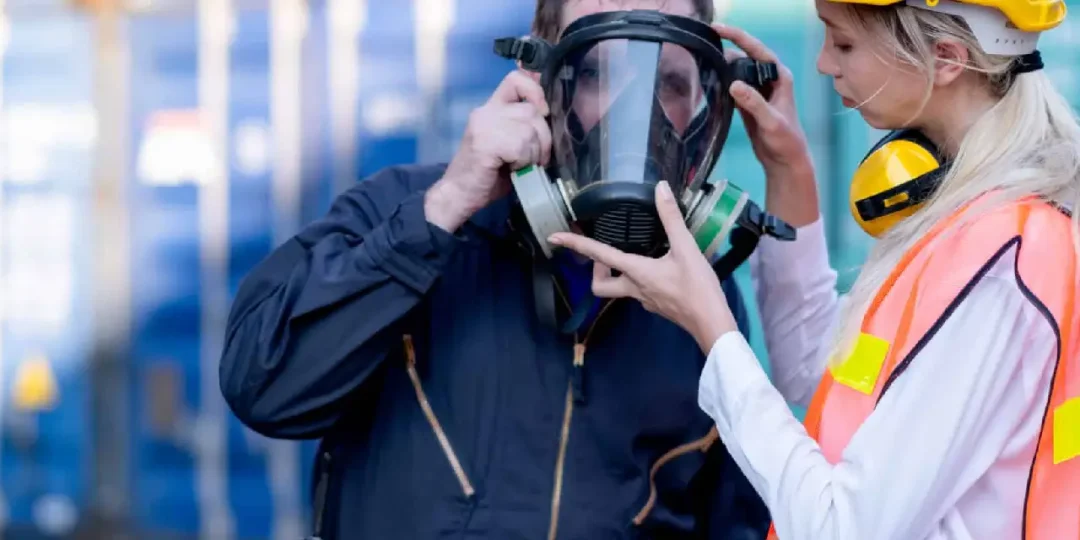
The Dangers of Silica Exposure
Silica exposure is an invisible threat that poses a significant risk to workers in Nashville’s industrial and construction sectors. Prolonged exposure to respirable crystalline silica, the fine dust generated during activities like cutting, grinding, or drilling silica-containing materials, has devastating health consequences.
Health Impacts of Silica Exposure
The most notorious health risk associated with silica is silicosis, a progressive and incurable lung disease. When inhaled, silica dust embeds itself in the lungs, causing inflammation, scarring, and irreversible damage over time. There are three forms of silicosis:
- Chronic silicosis develops after years of low to moderate exposure.
- Accelerated silicosis occurs after shorter, high-level exposure periods.
- Acute silicosis can develop within weeks or months of intense exposure, leading to rapid and life-threatening health deterioration.
Beyond silicosis, silica exposure can cause lung cancer, as recognized by organizations like the World Health Organization (WHO) and OSHA. Workers exposed to high levels of silica are also at risk of chronic obstructive pulmonary disease (COPD), which impairs breathing and significantly reduces quality of life. These conditions not only jeopardize the health of employees but also create a ripple effect, leading to higher absenteeism, reduced productivity, and increased healthcare costs for businesses.
For Nashville’s rapidly expanding workforce, particularly in construction, manufacturing, and demolition, these risks are amplified. With projects constantly underway, the need for vigilant silica safety measures cannot be overstated.
Why Silica Safety is Critical for Nashville Businesses
Nashville’s transformation into a hub of innovation and development brings with it unique challenges related to silica exposure. The city’s thriving construction industry, roadwork projects, and renovation activities frequently generate silica dust, placing workers at heightened risk.
Financial and Legal Risks
Non-compliance with OSHA’s silica standards can result in hefty fines, which increased in 2023, along with potential lawsuits and insurance complications. These financial burdens can significantly impact Nashville businesses, especially small and medium enterprises that may lack the resources to absorb such penalties. Legal actions arising from worker health claims could damage a company’s reputation, making compliance with silica safety protocols not just advisable, but essential.
Reputational Impact
Employees and clients alike expect businesses to prioritize safety. Failing to address silica risks can tarnish a company’s reputation, leading to a loss of trust. On the other hand, businesses that proactively invest in silica safety are seen as ethical and responsible, which enhances employee loyalty and attracts clients who value workplace integrity.
By adopting robust silica safety measures, Nashville businesses not only protect their workforce but also strengthen their market position. Fortier Loss Control helps local companies achieve these goals by offering tailored solutions that address the specific challenges of Nashville’s industries.
Tip #1: Conducting a Comprehensive Silica Risk Assessment
The cornerstone of effective silica safety management is a thorough risk assessment. Identifying areas where silica dust is most likely to be generated is crucial for implementing targeted safety measures.
Steps to Conduct a Silica Risk Assessment
- Task Analysis: Evaluate all processes and tasks that involve silica-containing materials, such as cutting concrete, grinding brick, or handling stone.
- Identify High-Risk Areas: Pinpoint locations where workers are exposed to airborne silica, such as enclosed spaces or areas with poor ventilation.
- Utilize Technology: Leverage modern tools like air quality sensors, real-time dust monitors, and mapping software to gather precise data on silica exposure levels.
- Engage Experts: Collaborate with safety consultants like Fortier Loss Control, who understand the unique dynamics of Nashville’s industries. Their expertise ensures that assessments are comprehensive and actionable.
Regular risk assessments allow businesses to detect new hazards as projects evolve. For Nashville companies operating in fast-paced environments, this adaptability is vital to maintaining a safe workplace.
Fortier Loss Control’s team brings invaluable local knowledge to the table. They understand Nashville’s industry trends, regulatory landscape, and environmental factors, making their risk assessment services highly relevant. By partnering with experts familiar with the region, businesses can ensure their silica safety plans are not only compliant but also efficient and cost-effective.

Tip #2: Investing in Engineering Controls
Engineering controls are one of the most effective ways to manage and mitigate the risks associated with silica dust exposure. These controls focus on reducing or eliminating the presence of airborne silica particles at their source, providing a proactive approach to workplace safety. For businesses in Nashville, TN, where construction, demolition, and manufacturing are prominent, these controls are critical for compliance and employee protection.
Examples of Engineering Controls for Silica Safety
- Water Suppression Systems: Using water sprays to dampen dust during cutting, grinding, or drilling operations is a simple yet effective solution. This method prevents silica particles from becoming airborne.
- Enclosed Dust-Generating Equipment: Fully or partially enclosing machinery that produces silica dust helps contain particles, reducing exposure for nearby workers.
- Local Exhaust Ventilation (LEV): Installing ventilation systems that capture and filter silica dust at the source ensures a cleaner and safer work environment.
- Advanced Filtration Systems: High-efficiency particulate air (HEPA) filters can trap fine silica particles, maintaining air quality within permissible exposure limits.
Benefits of Engineering Controls
For Nashville businesses, the advantages of engineering controls extend beyond compliance. These systems:
- Enhance worker health and safety, reducing incidents of silica-related illnesses.
- Improve productivity by minimizing downtime due to health-related absences.
- Decrease long-term operational costs by lowering the likelihood of fines and compensation claims.
By investing in these measures, businesses demonstrate their commitment to employee well-being, fostering trust and loyalty among their workforce.
Tip #3: Providing Effective Personal Protective Equipment (PPE)
While engineering controls are the first line of defense, Personal Protective Equipment (PPE) plays a crucial role as a secondary safeguard. PPE protects workers when exposure to it cannot be entirely eliminated.
Key Components of Effective PPE
- Respirators: Providing workers with properly fitted N95 or P100 respirators ensures protection against respirable silica particles. Fit-testing is essential to ensure effectiveness.
- Protective Clothing: Wearable barriers, such as disposable coveralls, help prevent silica particles from contaminating clothing and being carried offsite.
- Eye Protection: Goggles or safety glasses prevent silica particles from irritating or damaging the eyes during high-risk activities.
Tailoring PPE for Nashville Businesses
Nashville’s diverse industries mean that no one-size-fits-all solution exists. Fortier Loss Control helps businesses identify the appropriate PPE for specific tasks, ensuring that employees have the tools they need for optimal protection. Training employees in the correct usage, maintenance, and replacement schedules of PPE is equally important, as improperly used equipment can compromise safety.
Tip #4: Employee Training and Awareness Programs
Investing in employee training and awareness programs is a cornerstone of creating a sustainable silica safety culture. Training ensures that workers understand the risks associated with silica exposure and equips them with the knowledge to mitigate those risks effectively.
Designing Effective Training Programs
- Comprehensive Curriculum: Cover topics such as silica hazards, safe work practices, the use of PPE, and emergency procedures.
- Interactive Learning: Use hands-on demonstrations and practical exercises to engage workers and reinforce key concepts.
- Localized Content: Tailor training materials to address the specific challenges of Nashville’s industries, such as construction and manufacturing, for maximum relevance.
- Ongoing Education: Regular refresher courses, workshops, and on-site training sessions help maintain awareness and adapt to new regulations or equipment.
Creating a Culture of Safety
Posters, infographics, and daily reminders reinforce training and keep silica safety top of mind. Businesses in Nashville can benefit from Fortier Loss Control’s training programs, which are customized to the needs of local industries. A workforce that is educated about silica risks is not only safer but also more confident and productive.
Tip #5: Regular Monitoring and Health Screenings
Routine air quality monitoring and health screenings are essential for maintaining a safe work environment and ensuring compliance with OSHA standards. These measures provide actionable insights into workplace conditions and enable early detection of silica-related health issues.
Air Quality Monitoring
- Real-Time Monitoring Devices: Advanced tools can detect and measure airborne silica levels, allowing businesses to respond immediately to exceedances.
- Scheduled Sampling: Regularly collecting and analyzing air samples helps identify trends and potential problem areas, ensuring ongoing compliance.
- Compliance Documentation: Detailed records of monitoring activities demonstrate adherence to OSHA standards, protecting businesses during inspections.
Health Screenings
Periodic health screenings ensure that workers exposed to silica receive proper medical oversight. These screenings typically include:
- Lung Function Tests (Spirometry): Assess workers’ respiratory health over time.
- Chest X-Rays: Detect early signs of silicosis or other lung conditions.
- Health Consultations: Provide workers with guidance on how to manage and minimize their risks.
Protecting Nashville’s Workforce
By incorporating regular monitoring and health screenings, businesses in Nashville demonstrate a proactive approach to employee well-being. Fortier Loss Control offers tailored solutions to simplify these processes, ensuring compliance without disrupting daily operations.
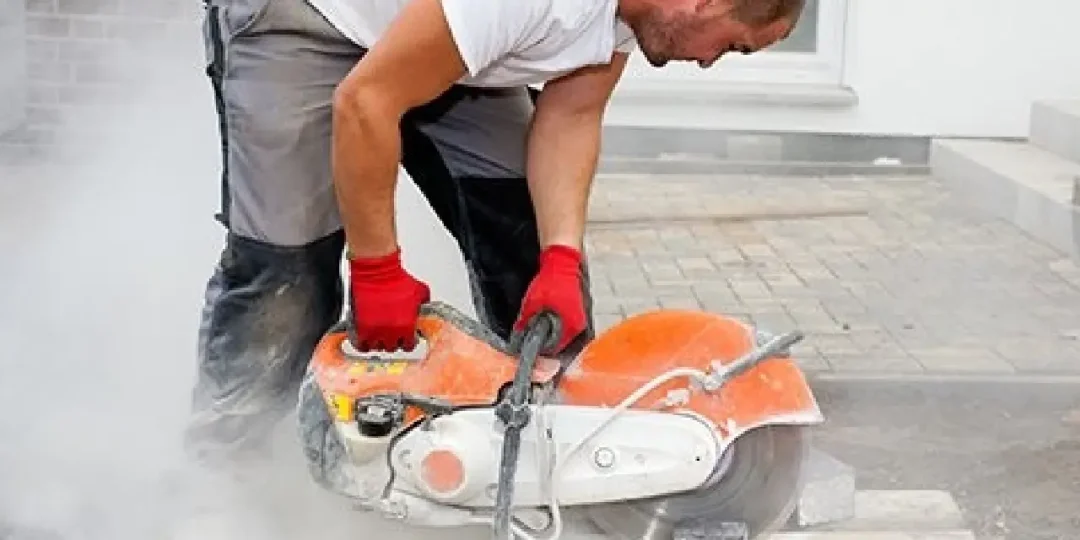
Frequently Asked Questions
1. What are the key OSHA requirements for silica safety that Nashville businesses need to follow?
OSHA’s silica safety regulations focus on reducing workers’ exposure to respirable crystalline silica. The key requirements include:
- Permissible Exposure Limits (PEL): Limiting workers’ exposure to 50 micrograms of it per cubic meter of air over an 8-hour shift.
- Engineering Controls: Implementing measures like water suppression or local exhaust ventilation to minimize airborne silica particles.
- Respiratory Protection: Providing respirators when engineering controls cannot fully limit exposure.
- Exposure Assessments: Regularly measuring and monitoring silica levels in the workplace.
- Employee Training: Ensuring workers understand the risks of silica exposure and know how to protect themselves.
- Medical Surveillance: Offering health exams, including lung function tests, for employees regularly exposed to silica levels above the action threshold.
Fortier Loss Control specializes in helping Nashville businesses implement these OSHA requirements seamlessly
2. How can Fortier Loss Control help Nashville businesses create a silica safety program?
Fortier Loss Control provides comprehensive support to help businesses develop and implement effective silica safety programs. Their services include:
- Risk Assessments: Identifying areas where silica exposure is most likely and offering tailored recommendations.
- Employee Training: Conducting customized training sessions to educate workers about silica risks and safe practices.
- Compliance Support: Assisting with OSHA documentation, inspections, and regulatory updates.
- Engineering Solutions: Helping install and maintain dust control systems, ventilation equipment, and other safety measures.
- Monitoring and Health Services: Setting up air quality monitoring and facilitating health screenings to ensure ongoing compliance and worker health.
Their local expertise in Nashville ensures that the solutions are practical, cost-effective, and aligned with the unique needs of the region’s industries.
3. Why is silica safety particularly important for businesses in Nashville, TN?
Nashville’s booming construction and industrial sectors mean that workers are frequently exposed to materials like concrete, stone, and brick that generate silica dust during cutting, drilling, or grinding activities. Without proper safety measures, this exposure can lead to serious health issues like silicosis, lung cancer, and chronic obstructive pulmonary disease (COPD).
Failure to address silica risks can result in:
- OSHA Penalties: Hefty fines for non-compliance with silica standards.
- Employee Health Risks: Long-term illnesses that impact workforce productivity and morale.
- Reputational Damage: A poor safety record can affect a company’s credibility with clients and the community.
By partnering with Fortier Loss Control, Nashville businesses can protect their employees, stay compliant with OSHA standards, and build a reputation as a responsible and ethical employer.
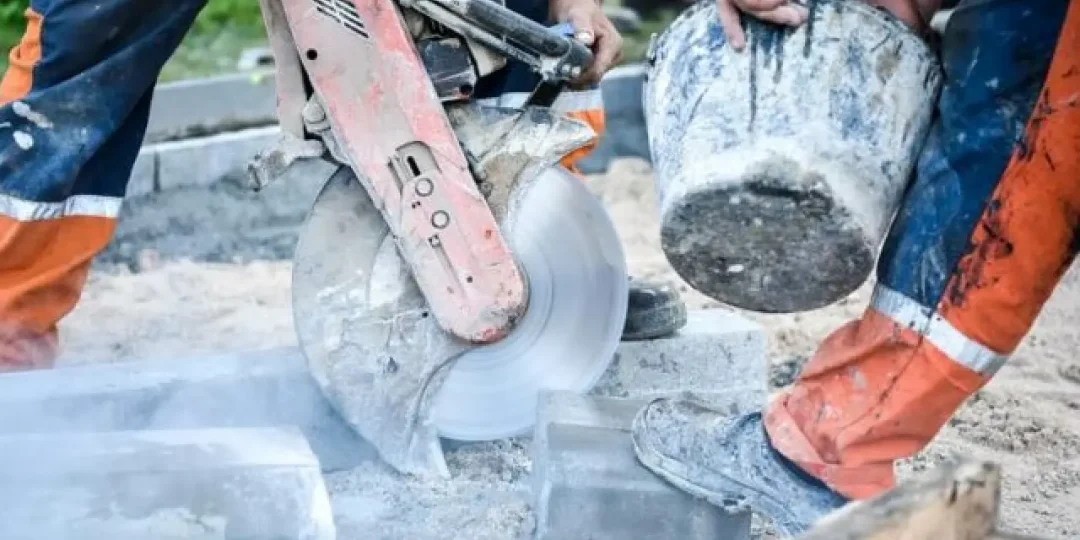
Partnering with Fortier Loss Control for Comprehensive Solutions
When it comes to silica safety in Nashville, businesses require a partner who understands not only the complexities of OSHA regulations but also the unique challenges and opportunities within the local landscape. Fortier Loss Control has established itself as a leader in providing comprehensive silica safety solutions tailored specifically for Nashville’s diverse industries.
Why Choose Fortier Loss Control?
Fortier Loss Control offers a holistic approach to silica management, combining technical expertise with a deep understanding of Nashville’s industrial dynamics. Their team of specialists works closely with businesses to design and implement strategies that not only meet but exceed regulatory requirements. Here’s how they make a difference:
- Customized Risk Assessments: Fortier Loss Control conducts detailed assessments of workplace environments to identify specific areas of silica exposure. Using state-of-the-art tools, they provide actionable insights that enable businesses to address hazards effectively.
- Tailored Training Programs: Employee education is a cornerstone of Fortier Loss Control’s offerings. Their training programs are customized to align with Nashville’s local workforce, addressing industry-specific challenges and ensuring employees are equipped to work safely.
- Comprehensive Compliance Support: Navigating OSHA regulations can be daunting, but Fortier Loss Control simplifies the process. From documentation to inspection readiness, they provide end-to-end support, ensuring that businesses remain compliant and prepared.
- Local Expertise: As a Nashville-based provider, Fortier Loss Control understands the city’s unique industries, from construction and manufacturing to specialized trades. This local knowledge enables them to deliver solutions that are both practical and impactful.
Additional Services
- Engineering Controls Implementation: Fortier Loss Control guides businesses in selecting and installing equipment like dust suppression systems and local exhaust ventilation.
- PPE Optimization: They help businesses choose the right protective gear, ensuring employees are adequately shielded from its exposure.
- Monitoring Systems Setup: With real-time monitoring devices and periodic testing services, Fortier Loss Control ensures ongoing compliance and a safer work environment.
By partnering with Fortier Loss Control, businesses gain access to not just a service provider but a dedicated ally in safeguarding their workforce and maintaining operational excellence.
Conclusion
Silica safety is more than a regulatory requirement; it is a commitment to protecting employees, fostering trust, and ensuring long-term business success. For Nashville’s growing industries, where construction sites, manufacturing plants, and roadwork projects are integral to the city’s expansion, the risks associated with its exposure are particularly pressing. However, with the right strategies in place, these risks can be effectively mitigated.
Fortier Loss Control provides the expertise and resources needed to achieve this. From risk assessments and employee training to implementing engineering controls and PPE solutions, they offer a comprehensive suite of services tailored to Nashville’s businesses. By partnering with Fortier Loss Control, companies can confidently navigate the complexities of the safety, ensuring compliance while prioritizing the health and well-being of their workforce.
Investing in its safety today not only protects employees but also strengthens business resilience and fosters a culture of accountability and care. With Fortier Loss Control as a trusted partner, Nashville businesses can build safer, more sustainable workplaces that contribute to the city’s ongoing success and development. Prioritize silica safety now to secure a healthier, more productive future for your team and your business.

